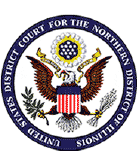Chicago Domestic Violence Lawyer
Experienced Domestic Abuse Lawyer in Chicago
Domestic violence is a serious issue for many people in Illinois and throughout the United States. Physical, verbal, emotional, or sexual abuse can cause a great deal of harm to a person, and in many cases, abuse victims struggle to leave dangerous situations and receive protection for themselves, their children, and others who may have been affected. Because of these concerns, a variety of laws have been implemented that are meant to provide victims with options for protection while prosecuting those who have committed violence or abuse against family members. Unfortunately, these laws are not always used correctly, and there are some situations where people may face serious consequences after being falsely accused of engaging in domestic violence.
If you have been arrested on charges related to domestic violence, or if an order of protection has been taken out against you, it is essential to work with an experienced criminal defense attorney who can help you protect your rights and respond to criminal charges and other related issues. At the Law Offices of James F. DiQuattro, our domestic violence defense lawyer can help you navigate the complex legal process related to charges of domestic violence while ensuring that your side of the story is heard. We will advise you on how to avoid violations of an order of protection, how to defend against criminal charges, and the steps you can take to resolve these issues while protecting your freedom, your relationships, and your reputation.
Criminal Charges Related to Domestic Violence
Illinois law defines domestic violence as acts of abuse against family members or people who live in a person's household, and these acts may include physical abuse, intimidation, and harassment. Interference with personal liberty, such as keeping a person confined in a room of a home, or willful deprivation, such as refusing to provide food for a family member, may also be considered domestic violence.
While domestic violence may be committed against a "family or household member," it is important to understand who falls into this category. A person may be accused of committing domestic violence against their spouse or former spouse, their child or parent, other people related to them by blood or marriage, or others who live in their home. Domestic violence can also be committed against a current or former dating partner or the other parent of a person's child, regardless of whether the parents are currently or have ever been in a romantic relationship.
In situations where police are called to respond to an incident of alleged domestic violence, they may arrest the person who they believe is the primary aggressor in an argument or family conflict. The specific charges that may apply in these situations will usually involve domestic battery. This offense involves causing bodily harm to a family or household member, but it may also apply if a person allegedly made any form of contact that could be considered insulting or provocative, such as slapping or shoving. Domestic battery is usually charged as a Class A misdemeanor, but more serious charges may apply in certain situations.
Domestic Violence Orders of Protection
In many cases involving accusations of domestic violence, an alleged abuser may find that their spouse or another family member has obtained an order of protection against them. These orders, which are commonly known as restraining orders, can be sought on an emergency basis. The petitioner can appear in a hearing before a judge without the accused being notified or given a chance to defend themselves, and if the judge issues an emergency order of protection, it will go into effect immediately.
An emergency order of protection can place serious restrictions on a person who is accused of domestic violence (known as the respondent). The petitioner may be given exclusive possession of a home shared with the respondent, and the respondent may not be allowed to enter the property or go near the petitioner. They may also be prohibited from communicating with the petitioner either directly (such as through phone calls or text messages) or indirectly (such as by asking someone else to deliver a message).
After an emergency order of protection is issued, it will remain in effect until a hearing can be held. At this hearing, both the petitioner and the respondent may testify and give their side of the story, and other evidence or witness testimony may also be presented. The judge will determine whether ongoing protections are needed, and if so, a plenary order of protection may be issued that may last for up to two years. A plenary order of protection may address additional issues, including how custody of a couple's children will be handled, whether the respondent will be required to provide financial support for the petitioner, and other requirements the respondent must meet, such as attending counseling.
Violating the terms of an emergency or plenary order of protection is a criminal offense, and a person may face additional criminal charges along with any charges related to domestic battery. A violation of an order of protection may result in Class A misdemeanor charges, although violating orders related to child custody may be considered a Class 4 felony. A person who violates a restraining order may also be held in contempt of court, which could result in fines, jail time, and other penalties.
Contact Our Cook County Domestic Violence Lawyer
If you have been accused of domestic violence, you may not be sure where to turn for help, especially if an order of protection has prevented you from speaking to your family members. At the Law Offices of James F. DiQuattro, we can help you understand how to proceed in these situations, and we will advise you on the steps you can take to protect yourself and avoid a criminal conviction or other consequences. To learn more about how we can assist you in these situations, contact us at 312-627-9482 and set up a free, confidential consultation.















